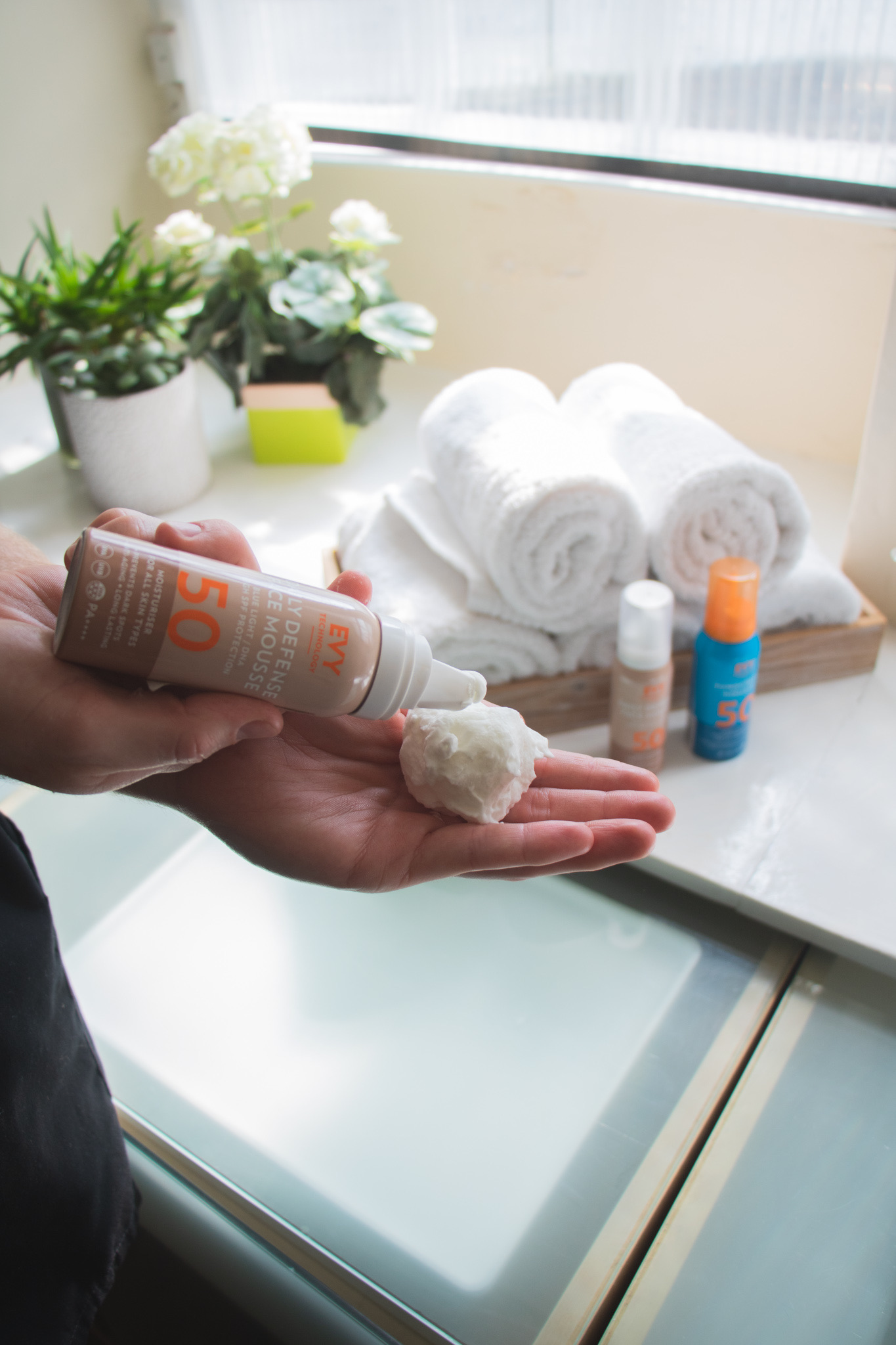Protecting Your Tattoos from the Sun
If you’re a regular sun seeker, you no doubt know how important it is to protect yourself from the sun’s rays. Having too little sun protection can lead to sunburn, skin damage and even skin cancer – which in turn can have some unpleasant knock-on effects for your tattoos…
Choosing your SPF products:
The process of buying skincare products is always daunting – the market is huge and there is an even bigger selection of products. So, how do you know which are the best products for you and your skin and which are just posing as good products?
(Don’t worry, I’ll recommend my favourite SPF products at the bottom of this blog to help you navigate the skincare world.)
SPF Ingredients:
This may or may not have crossed your mind, that SPF has ingredients… Most ingredients found in SPF are commonly used and can be found in most of the SPF products on the market. But as with all ingredients, some are good and others not so..
Sunscreen ingredients deemed safe and effective by the Food and Drug Administration (FDA) include:
- zinc oxide
- titanium dioxide (in cream)
Mineral sunscreens are very effective at protecting tattoos. Currently they’re thought of as safer for you and the environment when compared to chemical sunscreens.
SPF ingredients that may be less safe, have been done so by scientists, who now know that some sunscreen ingredients can be toxic to the environment. Some research also suggests certain sunscreen ingredients may increase the risk of some skin problems. Ingredients that may be harmful to the environment, particularly coral reefs and aquatic life, include:
- oxybenzone (banned in Hawaii)
- octinoxate (banned in Hawaii; Key West, Florida; and Palau)
A recent study found that some SPF ingredients, like oxybenzone, can be absorbed into the bloodstream beyond the threshold approved by the FDA. Further studies are needed to determine if this can affect your health in any way. Another ingredient to watch out for is para-aminobenzoic acid, also known as PABA. Banned in Australia and Canada, PABA may increase the risk of allergic dermatitis. PABA can also increase the skin’s photosensitivity.
How often should I apply SPF?
If you plan on being in the sun, apply sunscreen 15 minutes before heading outside. After that, reapply at least every two hours. Apply more often if you’ve been swimming or sweating heavily. The reasonable time limit is 80 minutes after swimming or sweating profusely, but be aware that you’ll be more vulnerable after swimming/sweating until you reapply.
UVA and UVB damage:
The sun emits two types of ultraviolet (UV) radiation, UVA and UVB. Both types of radiation do different things to your skin and can damage tattoos in different ways.
It may be an obvious point, but SPF can prevent UVA and UVB rays from damaging your skin and affecting the appearance of your tattoos.
UVA Rays tend to penetrate the skin more deeply than UVB rays, causing more long-lasting damage. These rays can cause skin to age prematurely, leading to wrinkles and textured skin over tattooed areas.
UVA rays can also fade many types of tattoo inks. According to tattoo experts, lighter-colored inks tend to fade faster than darker inks. White and pastel inks fade fastest of all. But even black and grey inks can fade over time if not protected.
UVB Rays are primarily responsible for causing damage to the very top layers of skin. UVB rays are most responsible for causing sunburn.
Sunburned skin can do a lot of damage to tattoos, especially if your tattoo is new. New tattoos are essentially open wounds that shouldn’t be exposed to direct sunlight until they’re healed. Sunburning a new tattoo will prolong the healing time and in some cases, even cause itching and blistering of the skin. Even sunburns on old tattoos can cause lasting damage. Chronic UVB exposure and sunburns may damage the appearance of tattoos over time, warping the shape and colouring of your tattoos.
According to tattoo specialists, sunscreens that are advertised and marketed as being specifically formulated for tattoos won’t protect your tattoo better than regular sunscreens. SPF products that are marketed for tattoos usually contain all the same ingredients as regular sunscreens. They’re just often sold at a higher price point.
SPF (or sun protection factor) is a measure of how strongly a sunscreen blocks the sun’s UV rays from penetrating your skin. Choose a sunscreen with an SPF of 30 or higher for covering your tattoos and the rest of your body. I would personally recommend an SPF 50 at all times, you’ll still tan – but in doing so you will greatly reduce any chances of skin damage to your skin and tattoos. The best approach to preventing sun damage is prevention, keeping out of the sun during the hottest parts of the day will be the most effective course of action.
BUT remember, UV still penetrates cloud cover – meaning you can burn even on those cloudy, grey days and during winter! It’s important to be aware of burning all year round and adopting the appropriate protection.
When buying your SPF products, look for those labeled “broad spectrum.” This means it contains ingredients that protect your skin from both UVA and UVB rays.
My Favourite SPF Products:
Evy Daily Defence Mousse SPF 50
Albus & Flora Naked Flora Lip Balm SPF 30
If you’re interested in any of these products and want to add them to your homecare kit, please get in contact or set up a consultation to add them alongside a treatment plan.
Want to know more?
Local Bath tattoo studio Onefive boast an excellence when it comes to design, tattooing and aftercare. Should you have anymore questions about caring for your tattoos, or adding to your collections then this is the place to go.


